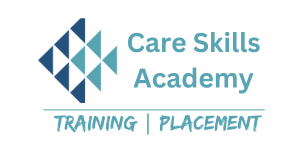In the sweltering heat of summer or the biting cold of winter, an efficient air conditioning (AC) system is indispensable. However, like all machines, AC units can encounter issues, requiring skilled professionals to restore their functionality. This has led to a growing demand for AC repair technicians, making it a lucrative career option. If you’re considering venturing into this field, enrolling in an AC repairing course can be your first step towards a rewarding career.
Why Choose AC Repairing?
AC repairing is a specialized skill that combines mechanical expertise, electrical knowledge, and practical problem-solving abilities. The growing dependency on HVAC (heating, ventilation, and air conditioning) systems in residential, commercial, and industrial settings means that trained AC technicians are in high demand. A career in AC repairing offers job security, a good salary, and the satisfaction of solving complex problems.
What to Expect in an AC Repairing Course
An AC repairing course is designed to equip students with the knowledge and hands-on skills necessary to diagnose, repair, and maintain AC units. Here’s a breakdown of what you can expect:
- Fundamental Theories and Concepts: The course usually begins with the basics of thermodynamics and refrigeration cycles. Understanding how AC systems work is crucial for effective troubleshooting.
- Electrical Components: Since AC units rely heavily on electrical components, you’ll learn about circuits, wiring, and electrical safety protocols. This knowledge is essential for diagnosing electrical issues in AC systems.
- Mechanical Skills: You’ll gain proficiency in handling various tools and equipment. This includes learning how to dismantle and assemble AC units, replace faulty parts, and ensure everything is functioning correctly.
- Diagnostic Techniques: One of the key skills you’ll develop is the ability to diagnose problems accurately. This involves using specialized diagnostic tools to identify issues such as refrigerant leaks, compressor failures, or airflow problems.
- Maintenance Practices: Regular maintenance is critical to the longevity of AC systems. The course will teach you preventive maintenance practices, such as cleaning filters, checking refrigerant levels, and ensuring that all components are in good working condition.
- Hands-On Training: Most courses offer practical training sessions where you can apply what you’ve learned in a controlled environment. This hands-on experience is invaluable, as it prepares you for real-world scenarios.
- Certification: Upon completion of the course, you may receive a certification, which can enhance your credibility and employability. Some courses also prepare you for industry-recognized certifications, such as those offered by the North American Technician Excellence (NATE).
Career Opportunities
Graduates of AC repairing courses have a wide range of career opportunities. You can work as a residential or commercial AC technician, join an HVAC service company, or even start your own repair business. Additionally, as you gain experience, you can specialize in areas such as system installation, energy efficiency consulting, or become an instructor yourself.
Conclusion
An AC repairing course is a worthwhile investment for those interested in a technical career with high demand. It provides the necessary skills and knowledge to excel in the HVAC industry, ensuring a steady stream of opportunities and professional growth. With the right training, you can enjoy a rewarding career keeping homes and businesses comfortable year-round.

